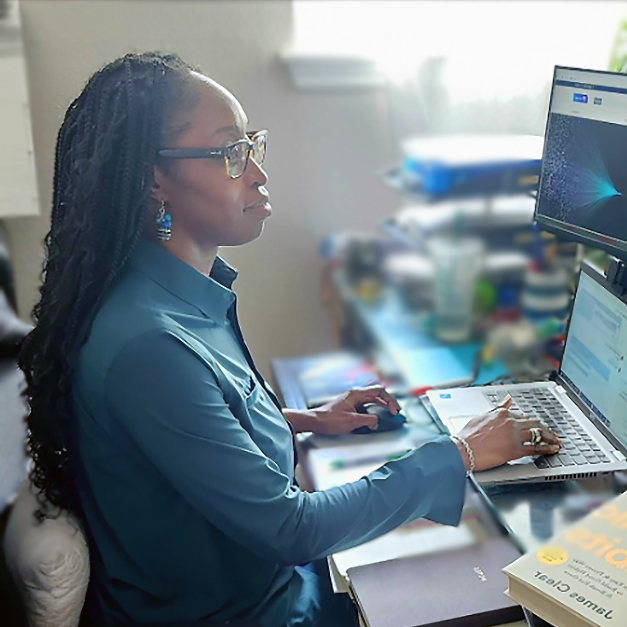Master of Science in Biomedical Informatics graduate Katrina Norwood jumped on the opportunity to present her capstone project at the 2019 Intelligence Artificielle et Santé, a machine learning conference in Paris.
For someone who had spent the greater part of her life in Arizona, Katrina Norwood, MScBMI’19, values the global perspective she obtained on healthcare and beyond as she studied alongside other Master of Science in Biomedical Informatics (MScBMI) students and friends from around the world at the University of Chicago. That is why she jumped on the opportunity to present her Capstone Project at the 2019 Intelligence Artificielle et Santé—a machine learning conference in Paris.
“Between presenting my capstone project and the interest in machine learning I’d developed through the biomedical informatics program, it seemed like the perfect experience,” she says. “Plus, it was Paris! And even better was that I was able to have the trip partially paid for through the UChicago Graduate Council Travel Fund,” a resource for UChicago graduate students offering assistance with travel expenses for academic conferences and other events.
Katrina sees this as a culminating experience in the biomedical informatics program and her path into the field of healthcare informatics. As she looks back on her academic and professional career, it is hardly a path she would have imagined for herself.
Path to Biomedical Informatics
After completing her undergraduate degree in health sciences in 2017, she started working in a cardiology lab as a way to continue taking steps towards her long-established goal of heading to med school to become a doctor. While asking her senior colleagues for tips on what she could do before entering the fast-changing world of medicine, they all pointed her in the same direction.
“Everyone told me how pervasive technology had become in the healthcare field, so I knew getting a head start in that area would be an enormous advantage,” she says. “That’s what led me to the master's in biomedical informatics program at the University of Chicago. Honestly, I had no idea I’d love it as much as I did.”
Making UChicago Connections
Never having taken a computer programming class before starting the program, she was immediately captivated by the computer informatics side of the field. She found her favorite courses to be Advanced Python Programming and Machine Learning—amazed by everything that could be done with the new tools and improved skill set she was acquiring.
Knowing that she wanted her capstone project to be based in the field of neuroscience, Katrina connected with a UChicago professor who set her on her path to dig deeper into connectomics to study the comprehensive mapping of the brain’s neurons on a nanoscale. More specifically, Katrina’s project focused on developing a series of comparative analysis tools for connectomic data that would give researchers a foundational basis of analysis.
“I got great help and advice in the design phase of the project and was also encouraged to take it in my own direction,” Katrina says. “Everything just blossomed from there. In the end, I used Python to create a module with four neurophysiological analysis scripts that will serve as a standardized pipeline for future analysis of 3D neurophysiological volume datasets.”
Solving Impossible Problems
Her experience in Paris was a wonderful conclusion to her capstone work. With the opportunity to share her research with others, she was also excited to connect with other researchers who would be there and to talk with them about their latest projects.
“That’s one of the main reasons I was interested to go in the first place,” she says. “The opportunity to speak with researchers doing informatics work in a totally different national context was eye-opening and very valuable. The experience, in addition to everything else, really solidified the idea for me that this was the sort of career I want to pursue.”
As for the spark that ignited the idea in the first place, Katrina can point to it precisely. It was the excitement she felt using the latest technologies to solve intricate biomedical informatics problems.
“I love the feeling of working on a problem that feels impossible to solve,” she says. “The feeling of spending days using all your energy brainstorming only to encounter again and again new challenges and roadblocks. But then you wake up one day, or it happens while you’re eating lunch—totally out of the blue—a new way of going about solving the problem occurs to you. I can’t even describe how incredible the feeling is when you go back to your desk and it finally works!”
The UChicago Biological Sciences Division (BSD) will oversee any future programming. Please visit the BSD website for more information about their offerings.



